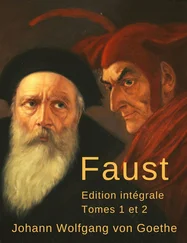What do you mean, never! the man on the lower landing said much too loudly. Do you really believe we can’t pin the child on you? Oh yes we can, even if you never laid a woman in your life.
Fine then, said W., see you in two days. . I’ll be there!
At that the lanky young man unstuck himself from the doorjamb, but remained standing where he was, staring wordlessly until W. realized that he was supposed to disappear. He did, but peered out through the letter slot; only when the stair light switched off did footsteps approach from upstairs; in the meantime a car had started up in front of the house, a door slammed, the engine revved, and the car screeched off down the street; in every respect the soundtrack of a B-movie.
Further summons had followed, the details exhaustingly repetitive, he could no longer tell the meet-ups apart (suddenly this term for his appearances at the town hall had crept in), though each time it was a different grey-suited gentleman he met. . all about the same age. . no, it might actually have been the same one each time. The meet-ups interwove and intertwined, the conversations held there became more and more banal and insignificant. . Spare me the details!
Soon the washed-out fog of the grey autumn and winter days, sinking over his path to the town hall and back, had covered the town for good. . and in this dusk it was lost to him. In the oppressive, vaporous light he soon saw nothing but shadows meeting, or barely crossing paths, nodding at one another over their shoulders, touching hands conspiratorially as they came out of the doors, as they went in the doors, exchanging furtive words amid poorly feigned coughing fits. He himself was one of these shadows, he had soon forgotten which one. . which one had gone to the town hall for a chat, which one returned from the town hall, angry at statements they’d chatted about. . and he was angry at his shadow that remained in the town hall, sitting there and chatting. . Don’t make me say any more!
Even on that first evening visit, of which he still had an approximate picture, they hadn’t actually negotiated with him, but with an imaginary character, with a notion of him they’d concocted in their minds. The lanky fellow leaning on the doorjamb, hadn’t he all too clearly spoken over his head. . into empty space? Not into empty space; he’d addressed his words to a ghost which invisible to W. had risen from the wall behind. . the lanky man had spoken with a figure that filled W.’s shadow in the background. This shadow was a projection. . yet made entirely of his being: of thoughts he hadn’t yet discovered in his mind, of nerves he hadn’t yet needed, of sensations he hadn’t yet experienced within. . and perhaps this projection commanded a language which he hadn’t yet spoken, but which had lingered in him at the ready. And he knew he’d be able to understand it, if only he yielded to it.
They had completely passed him over, then, with those words they spoke in his direction from different sides; what he’d been until that evening, they had disregarded, merely using him as an interposed medium for their thoughts on the one side and on the other side, and in so doing they had spoken to — and brought to life — a structure within him of whose existence they could have had but a purely theoretical notion. . perhaps every person harboured this structure, or every person of a certain character profile to which W. belonged? All they’d had to do was complete him to accord with this structure. . they’d filled his customary stock of signs with more complete contents. . previously he had lived in the delusion that complete contents should suffice, but they had found the heightened form.
They needed him in different places at once, they needed him in different times at once; this was possible only when chronologies were imposed upon the circumstances in retrospect; life was thereby transformed into a theory; apparently there was a structure within him that coped quite well with that. They had spoken to him from different floors, and he had functioned. — Now they needed only to seal him off from the voices of his former life, so that he would hear them from a distance, while teaching him to speak in different voices, in feigned voices. . he could recall the desire to speak in a feigned voice from his very early childhood. Could this be about rekindling certain influences from his early childhood?—W. vaguely recalled that as a child he’d always been fleeing from his mother. . and thus, perhaps, unconsciously seeking his father?
As far as he recalled, just a few days later he’d thought he noticed changes in himself. He had a certain detachment from his affairs, in some unclear fashion taking them more lightly than usual. During his early shift at the factory one of the foremen confronted him because he’d vanished after lunch several times recently. Instead of the usual stammering search for an answer he’d come to expect from himself, he’d given the foreman the brush-off: he hadn’t seen him hanging around the factory then either, not to mention a couple of other guys from division management; in fact, when he left the production hall he’d seen them back in the factory yard busy washing their private cars during working hours. That had demotivated him. . incidentally, in the near future he had better prospects opening up. Better than killing time tearing up holes in this factory because elsewhere more conspicuous ones were being temporarily plugged.
He recalled uttering this in a voice that made the foreman flinch. The man was left speechless; W. had enough time to turn around calmly and walk out of reach, head held high, listening through the noise of the machinery for any sound from behind. And the foreman didn’t come after him; later W. saw him sitting solemnly behind the window of the production hall office, his face drained of colour, or so it seemed to W. No more cars were washed in the factory yard that week. . the foreman must have sensed that W.’s speech was more than a feint. W. was surprised at himself: he’d actually spoken as though he had some sort of backing no one knew about.
And then once again he’d sensed that his colleagues were avoiding him. Previously he’d put this impression down to various flukes; now he noticed that they fell silent when he entered the staff room where they sat drinking beer. . they were practically about to hide their beer bottles from him. But no, they didn’t hide their beer bottles as they would have done if the foreman had come in; they fell silent and changed the subject. . they wouldn’t have changed the subject if the foreman had come in. Probably he was starting to notice things that had always been the case. . in a strange way his awareness of things he’d never thought about before was heightened. Like it or not, his attention to details was growing. . like it or not, he behaved like a person with an ever-honed eye for others’ idiosyncrasies, for the interplay of these idiosyncrasies within the factory collective. Suddenly he registered banalities, he’d developed a sensorium for minutiae. . it struck him that they nodded to one another when he approached them; when three or four of them stood chatting amid the factory noise and he came past, they communicated with their eyes. . no longer would he learn the latest football results they’d just shared; when he tried to ask, they dispersed without a word. — It occurred to him that several colleagues had once observed him making notes for one of the writing projects he’d meant to return to after work. . they’d tried, using the dirtiest of tricks they’d tried to sound him out about it. . at the time he’d sensed them observing him, he’d felt their eyes incessantly scanning him, he was the sole theme of their mistrust, they nosed about him. . from a distance, but with unflagging zeal (with heightened vigilance!); they grew eyes in the backs of their heads when they knew he was behind them. He’d wanted to confront them about it, at least one of them, the one he’d known the longest, but he hadn’t managed it. Then he had tried to ignore the whole thing. — Now the tables had turned. . now they had decided to ignore the matter.
Читать дальше












